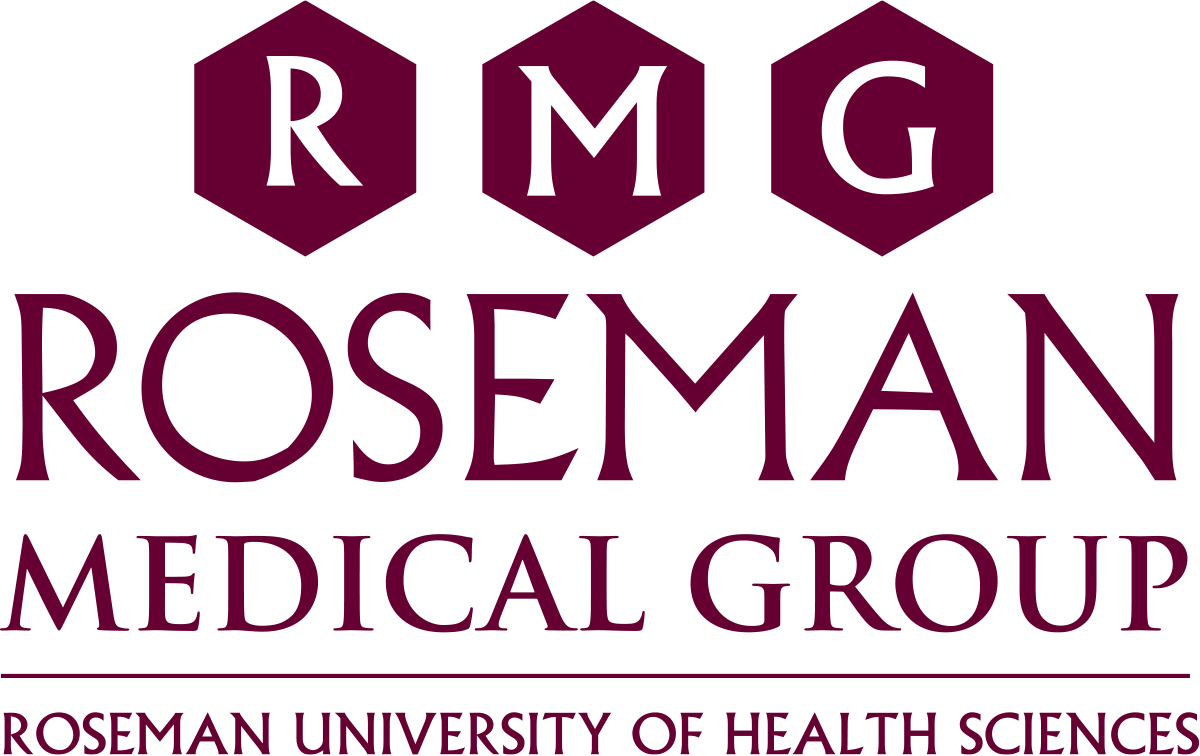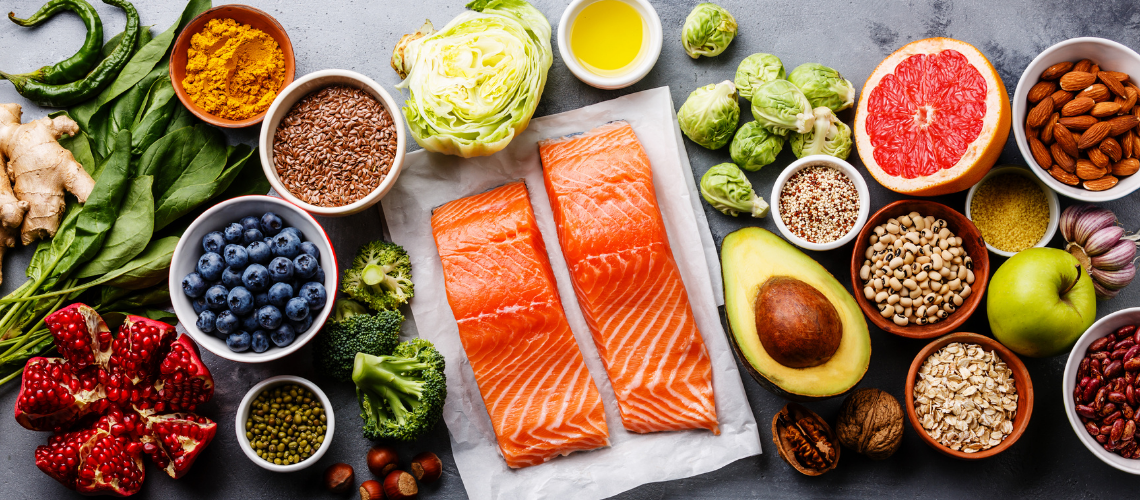A balanced diet provides a proper amount of calories and nutrients to fulfill a person’s nutritional needs. By consuming food with nutritional value, your body receives the nutrients and calories needed to function correctly. The United States Department of Agriculture (USDA) recommends eating foods from the five groups to build a balanced plate.
- Fruits
- Vegetables
- Grains
- Protein Foods
- Dairy
Building a balanced plate is essential to your health and can have positive effects which add up over time. To construct a balanced plate, one half should contain fruits and vegetables and the other half grains and protein. In addition, be sure to add a serving of low-fat dairy or another source of nutrients found in dairy to each meal.
Fruits
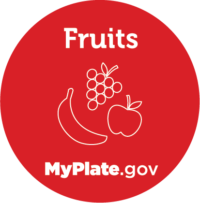 When consumed as part of a healthy diet, fruits provide many health benefits. Known as nature’s candy – fruits are rich in nutrients such as potassium, dietary fiber, vitamin C, and folic acid. In addition, they are naturally low in fat, sodium, and calories. Daily consumption of fruit may be fresh, frozen, canned, or dried, and may be served whole, cut up, or pureed.
When consumed as part of a healthy diet, fruits provide many health benefits. Known as nature’s candy – fruits are rich in nutrients such as potassium, dietary fiber, vitamin C, and folic acid. In addition, they are naturally low in fat, sodium, and calories. Daily consumption of fruit may be fresh, frozen, canned, or dried, and may be served whole, cut up, or pureed.
Vegetables
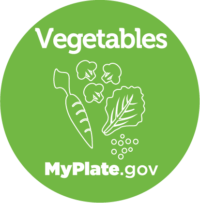 Like their balanced plate partner, vegetables are low in fat and calories. Additionally they contain potassium, dietary fiber, folic acid, vitamin A, and vitamin C. Vegetables vary in nutrient count, therefore they are organized in five subgroups – dark green; red and orange; beans, peas, and lentils; starchy; and other vegetables. The USDA recommends consuming vegetables from each of the five subgroups every week in order to benefit from the various nutrients each provides.
Like their balanced plate partner, vegetables are low in fat and calories. Additionally they contain potassium, dietary fiber, folic acid, vitamin A, and vitamin C. Vegetables vary in nutrient count, therefore they are organized in five subgroups – dark green; red and orange; beans, peas, and lentils; starchy; and other vegetables. The USDA recommends consuming vegetables from each of the five subgroups every week in order to benefit from the various nutrients each provides.
Grains
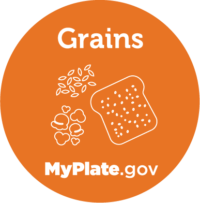 Grains make up ¼ of your balanced plate and are divided into two subgroups – whole grains and refined grains. Whole grains contain three parts of the grain – bran, germ, and endosperm. Refined grains are milled – removing the bran and germ – to provide a finer texture and improve shelf life.
Grains make up ¼ of your balanced plate and are divided into two subgroups – whole grains and refined grains. Whole grains contain three parts of the grain – bran, germ, and endosperm. Refined grains are milled – removing the bran and germ – to provide a finer texture and improve shelf life.
At least half of the grains you consume should be whole grains. Healthy whole grains include:
- Quinoa
- Oats
- Brown rice
- Barley
- Buckwheat
Protein Foods
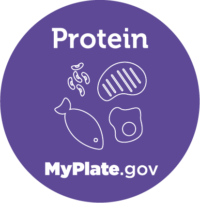 As grain’s plate partner, protein foods make up the remaining ¼ of the plate. Protein foods are the building blocks for bones, muscles, cartilage, skin, blood, enzymes, hormones, and vitamins. They provide many nutrients to your body including B vitamins, vitamin E, iron, zinc, and magnesium. Selecting a variety of protein foods provides your body with an array of nutrients.
As grain’s plate partner, protein foods make up the remaining ¼ of the plate. Protein foods are the building blocks for bones, muscles, cartilage, skin, blood, enzymes, hormones, and vitamins. They provide many nutrients to your body including B vitamins, vitamin E, iron, zinc, and magnesium. Selecting a variety of protein foods provides your body with an array of nutrients.
Protein foods include:
- Seafood
- Meat and poultry – lean or low-fat are best
- Eggs
- Beans, peas, and lentils – vegetarian options
- Nuts, seeds, and soy products – additional vegetarian options
Dairy
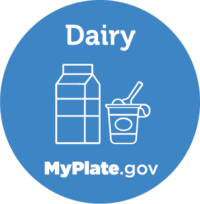 Approximately 90% of Americans do not receive enough dairy, therefore most individuals miss out on the essential nutrients and benefits provided. Don’t be fooled by foods made from milk such as cream cheese, sour cream, cream, and butter. These foods contain little calcium, high fat content, a lack of nutrients, and are not considered dairy foods. Dairy consists of milk, yogurt, cheese, lactose-free milk, and fortified soy milk and yogurt.
Approximately 90% of Americans do not receive enough dairy, therefore most individuals miss out on the essential nutrients and benefits provided. Don’t be fooled by foods made from milk such as cream cheese, sour cream, cream, and butter. These foods contain little calcium, high fat content, a lack of nutrients, and are not considered dairy foods. Dairy consists of milk, yogurt, cheese, lactose-free milk, and fortified soy milk and yogurt.
Don’t consume dairy products? There are several non-dairy, calcium rich alternatives:
- Calcium-fortified juices, cereals, breads, and plant-based milk alternatives such as almond milk or oat milk
- Canned fish
- Soybeans and soy products
- Leafy greens such as collard and turnip greens, kale, and bok choy
Creating a Powerful Balanced Diet
A balanced diet is more than just making sure you eat the right amount of food from each of the five groups. Components from various foods are very beneficial when consumed together. Consuming foods in the right combinations can increase absorption of vitamins and minerals. For example, consuming vitamin C from citrus fruits and/or dark-green vegetables can enhance your body’s absorption of iron which is found in lean meat, fish, beans, and some leafy greens – when consumed at the same time. What are the benefits you ask? Well, research has shown that vitamin C combined with the phytoestrogen (plant-based compound) found in various fruits, vegetables, whole grains, and beans can constrain the oxidation of LDL (bad) cholesterol.
Maintaining a balanced diet is essential to your overall health and well-being. Consuming a diet with nutritional value provides many benefits. The primary care providers at Roseman Medical Group are dedicated to offering patient-centered care and are here to help you in your health and well-being journey. To schedule a wellness visit with one of our providers call 702-463-4040.
Article by Kristine Campo
